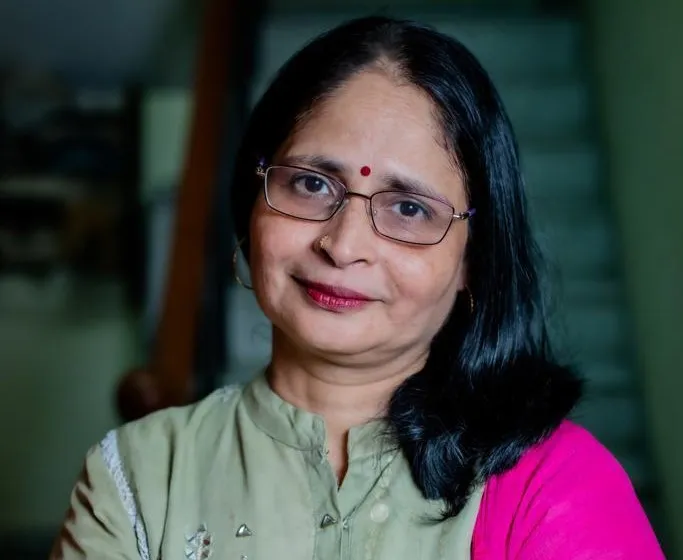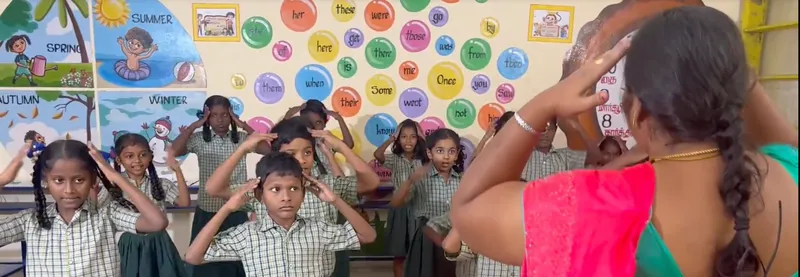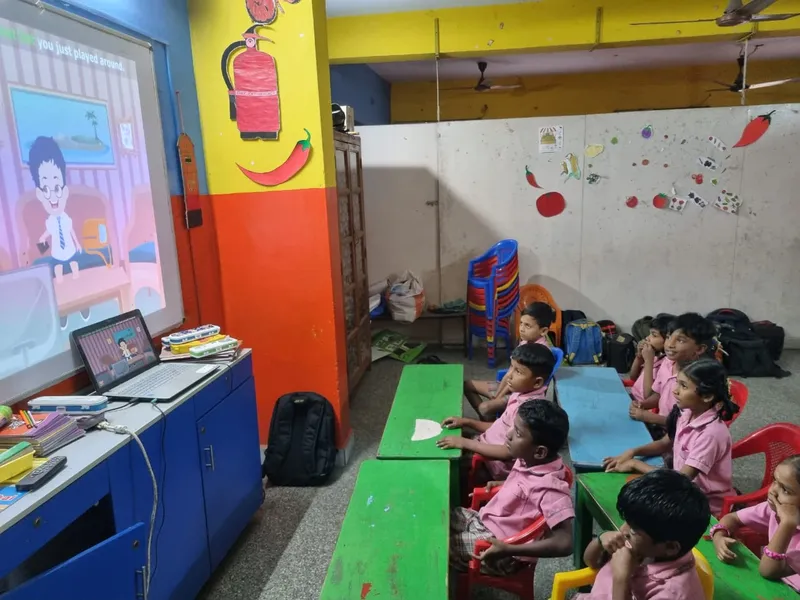Homemakers to bread earners: How this foundation helps women get back on their feet
Thanks to this non-profit foundation, over 275 graduate women from low-income groups in Tamil Nadu have financial autonomy for the first time in their lives.
S Deepalakshmi, a resident of Nungambakkam in Chennai, remembers herself to be great at maths in school. Her friends were aware of it too.
However, ahead of exams, she could not help them with complex theorems and calculations as friends often do, as she was always scared and shy to speak about what she knew. “In my head, it all made sense. But the moment I spoke, it came out as gibberish,” she says.
Today, the 36-year-old is the head of a micro-learning centre at a government school in Kodambakkam, Tamil Nadu—her first job in eight years after she got married. And she cannot get enough of it.
“When I see a child learn something new because of me, I feel my years of inhibition and lack of confidence melting away, and a sense of purpose I never knew I had,” Deepa tells SocialStory.
Like Deepa—who has a degree in zoology—over 275 educated women from socially and economically marginalised backgrounds across Tamil Nadu are getting to put their college degrees to use for the first time.
Madhumati Narayanan, CEO of Chennai’s Shraddha Maanu Foundation, is turning teachers and mentors out of them for hundreds of government school children.
Many of them are also the first women in their families to bring home a salary, at times higher than their husbands, which in rural and disadvantaged urban homes translates to respect and autonomy—values they rarely grow up with.
And, prompting Narayanan to discover this workforce of women was her house help, Ramya.
Five years ago, Narayanan saw Ramya intently going through an English daily, broom in one hand. “I asked her if she could read fluently and understand, and she revealed to me that she was a postgraduate,” says Narayanan.

Madhumati Narayanan, CEO, Shraddha Maanu Foundation
“I was more astounded to know that in her neighbourhood, there were numerous women graduates who were stay-at-home mothers, worked as house helps, or dedicated their entire days to taking care of their in-laws because of lack of familial support, training, and cultural norms. And most of their husbands, who hadn’t finished school and were daily wage labourers, were the family’s primary breadwinners,” she shares.
In Tamil Nadu, the Shraddha Maanu Foundation runs an after-school programme for primary school children through a curriculum focused on Foundational Literacy and Numeracy (FLN), which incorporates child-centric principles and nurtures cognitive, moral, emotional, imaginative, social, and spiritual abilities of a child, creating a holistic and multidisciplinary learning environment.
The programme runs on the principles of multiple intelligences learning created by Howard Gardner, an American developmental psychologist and professor at Harvard Graduate School of Education.
In the academic year 2022-2023, the programme reached 732 children. It aims to benefit at least 1,800 children in the coming year.
However, in 2019, the foundation struggled to find full-time teachers to adopt its after-school curriculum and develop it as these teachers worked within a standard operating procedure at the schools where they were employed.
“I thought, why not create our own teachers from this demographic of educated women who wanted to go out and work and could also help us,” she adds.
The foundation started Upasana—a teacher training programme—following a dipstick study in lower-income areas in Chennai, leading it to a whole workforce of eligible women candidates.

The programme for primary school students is imparted through a curriculum focused on Foundational Literacy and Numeracy (FLN), which works on child-centric principles and nurtures their cognitive, moral, emotional and social abilities
It trains these women in English, math, science, and value education through multiple intelligences methodology—focusing on verbal, logical, intra/inter-personal, kinesthetic, visual, and musical aspects.
The free-of-cost programme for teachers is imparted over six months and divided into two parts:
- About 150 hours of online/hybrid sessions over three months in batch sizes of 20 to 30 trainees
- Three months of on-the-job training in their neighbourhood schools backed by a mentorship programme to ensure trainees have all the support to conduct and manage classes.
For these women in Tamil Nadu, the programme has translated into financial autonomy—critical in homes marked by poverty, family discord, alcoholism and abuse.
Further, running a house and child-rearing responsibilities in conventional systems—which these women are solely expected to uphold—are hindering their work prospects after marriage.
V Jayachitra, a 39-year-old resident of Chennai, who had passed an examination to become a police constable, had to put her dreams on hold after marriage as her family insisted she stayed home.
Five years ago, when her son brought home a pamphlet of the Upasana training programme from his school, she decided to apply and got through. Despite some resistance at home, she now works as a part-time teacher in a government school in Chennai and takes after-school tuition for children.
“I get Rs 7,500 to work for a few hours in the afternoon, and it is enough for me to run the house the way I would like. I no longer ask my husband for money for any expense—big or small,” says Jayachitra.
Narayanan admits that after completing the Upasana programme, many women opt to take up jobs as assistant teachers outside of the programme, and that’s still okay. “Because we ultimately want to see them get into the workforce and cultivate self-esteem, and we have succeeded in doing this,” she says.
For example, 34-year-old Gayathri Velmurugan—born and raised in a small village in Nagapattinam—shied away from most opportunities in her life because she couldn’t speak English, which deeply impacted her self-confidence.
“I’m a graduate of B.Sc Computer Science, and I still couldn't muster up the courage to work because I had a mental block that, as a Tamil medium student, I would never survive in the professional world,” she says.
As part of Upasana's first batch in 2019, Gayathri trained in spoken English, which, she says, “was extremely daunting, but my mentor in the programme kept telling me just one thing—I could do it. That was the first time anyone had told me this, so I did it.”
Today, Gayathri works as a government school teacher in Chennai's Kodambakkam and takes home a salary of Rs 10,000 per month.
“It has done wonders to how I feel about myself,” she says. “Previously, I would get gifts for my husband using his money. For the first time, I got him a watch using my money. And, I finally feel like an equal,” she adds.

Multiple Intelligences learning is a methord created by Howard Gardner, an American developmental psychologist and professor at Harvard Graduate School of Education.
At present, Shraddha Maanu Foundation has set up 42 micro-learning centres in government and government-aided schools across the state, where its teachers conduct the after-school programme.
They work about three hours per day, giving them ample time to manage household responsibilities too. Narayanan says the foundation’s programmes are supported by high-net-worth individuals (HNIS) and corporates through their CSR initiatives.
Upasana’s upcoming batch in June will train 24 women graduates over five batches. “We are also planning to scale up our learning centres to 115 by the end of this year,” she says.
Edited by Suman Singh








